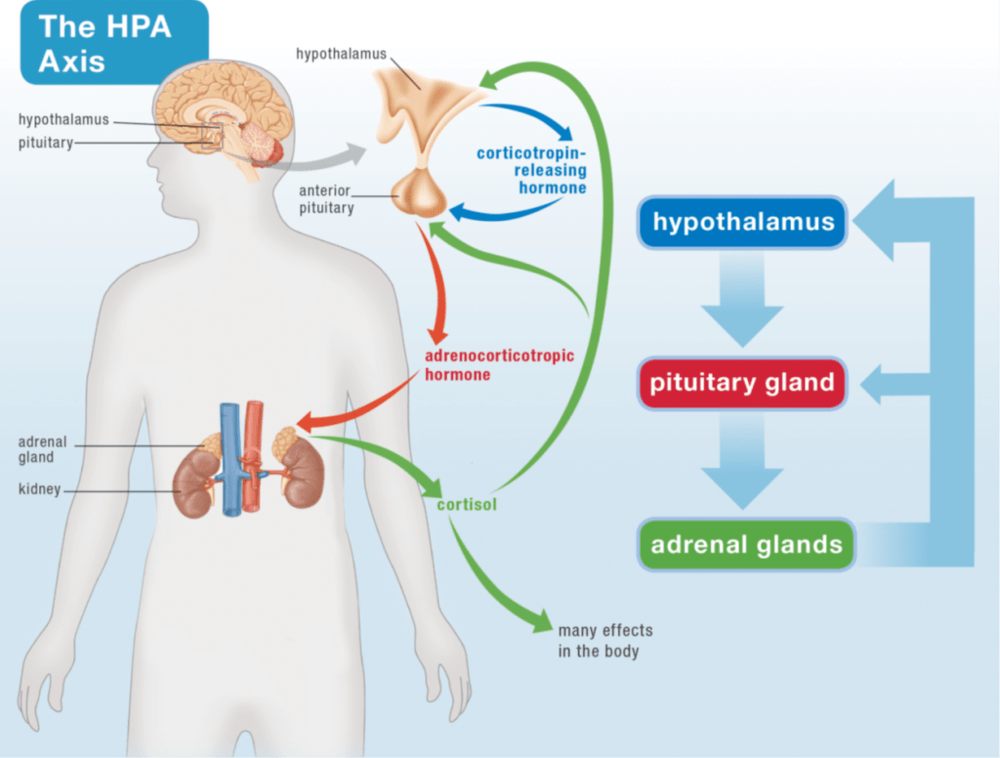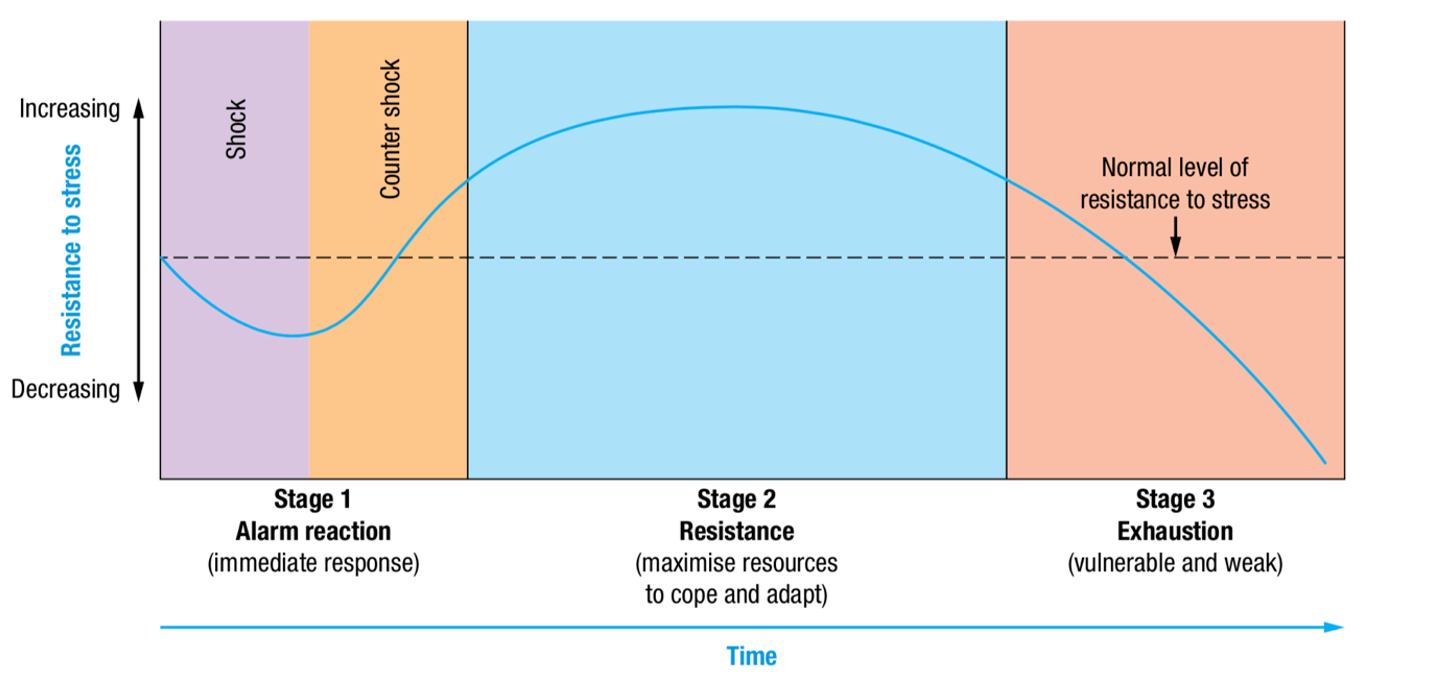I’m sure you are all tired of me harping on about stress. Especially when you come in with acute lower back pain and one of the first things out of my mouth is, ‘Are you under more stress than usual?’ I am going to try to explain to you here, why my question is relevant and the relationship between stress effects on general health and symptoms of body pain.
What is stress
I should explain firstly what I mean by stress. Stress is any stimulus that is more than we can cope.
Sources of stress:
- Physical – such as poor posture; a work position or a repetitive position; a trauma, old or new; exercise.
- Emotional – usually relating to either social relationships, money and/or job satisfaction.
- Chemical – such as pollutants, recreational drugs, medication, artificial hormones e.g. oral contraceptive pill, HRT. There are also artificial hormones in our foods along with herbicides and pesticides; processed foods, alcohol, nicotine, fire retardants in our pillows, mattresses and carpets; cleaning products, detergents, shower gels, deodorants; the list goes on and on…
- Temperature – this can be extremes in temperature, whether that is very hot or very cold; but also can be caused by seasonal changes.
Now the interesting thing is the body doesn’t differentiate between these sources of stress. It’s just ‘stress’ and the body has the same physiological response. This response can cause muscle tension, which leads to restricted movement, inflammation and pain. We are going to go into more detail a little later but are you getting the picture on how stress effects general health and symptoms of body pain may be linked?
Why our bodies react to stresses
Stone Age stress
Now in the old days, we’re talking stone-age here. We would need our bodies to react quickly to the stress to keep us alive by either running away from it, over powering it or killing it. The body has a reaction to deal with any of these needs; it is called the Alarm Reaction or ‘fight or flight’ reaction. After the stress has passed, the body then needs to recover from the stress.
A modern day example of stress
Life can be a juggling act for our bodies, for example, let’s take a typical morning for many people. Stay in bed too long and therefore have to miss breakfast. It’s a really cold morning. You run to catch the train to find that it is standing room only. Then the train is held up (due to leaves on the tracks!). You are going to be late for work. The train is packed full of hot, stressed bodies and there is no air-conditioning in the carriage. You can read a newspaper over someone’s shoulder to discover train fares are going up again! So many stresses and you haven’t even got to work yet!
A busy Brighton to London train?

According to anthropologists,the human body today is virtually the same as it was 100,000 years ago. However, our stresses these days are very different; they are less extreme (a mammoth is not attacking us) but much more frequent and ongoing. We even experience stress while we think we are relaxing, e.g. watching a thriller on TV.
Nowadays, we are continually under stress but the situations cannot be dealt with by running away or punching someone (I wish). We just swallow, continue and then something else stresses us again with in a short time. This continues throughout the day. We appear to be continually under a myriad of physical, emotional or environmental stresses daily and we expect our adrenal glands to keep up with our demands. Our adrenal glands need time to recoup or they will become exhausted.
The Alarm Reaction
Let’s look at the Alarm Reaction in a little more depth and what it does to the body. We are going to break this down into three stages: 1.Alarm, 2.Resistance and 3.Exhaustion.
1. Alarm
Stress stimulus initiates an emergency signal to a region of the brain called the hypothalamus, to command the anterior lobe of the pituitary gland to release a hormone called ACTH into the bloodstream (HPA Axis). This hormone will command the adrenal glands which are the stress glands that sit on top of the kidneys, to release cortisol.
Cortisol has the following effects:
- Causes sodium and water retention in the kidneys (prolonged stress can result in craving salty foods, e.g. crisps, processed foods)
- Causes protein breakdown to sugar for instant energy so that you can either run away or fight. This can affect the immune system as initially the protein is taken from the thymus gland and the lymphatic system.
- Sugar is also released from the liver where it is stored as glycogen. Stressed people crave stimulants; sugar is a stimulant.
Simultaneously the brain also commands that the adrenals produce adrenaline and nor-adrenaline. These three major hormones instantly mobilize the body for ‘fight’ or ‘flight’.
Fight or flight initiates the following:
- a) Shuts down digestion as it’s not necessary for immediate survival. Shunts blood away from digestive organs to skeletal muscles.
- b) Bladder and rectal muscles relax(can be messy).
- c) Heart rate increases, blood vessels dilate and blood pressure rises.
- d) Breathing becomes fast and shallow to supply oxygen to heart, lungs and muscles. Use of accessory neck muscles to create more upper lung space. Continued stress can lead to poor breathing habits which in turn can lead to neck pain and or headaches.
- e) Muscle tension increases.
- f) Sweat increases.
- g) Pupils dilate.
- h) Increases blood clotting.

For a few brief moments, these functional changes could give you super human strength enabling you save someone from a burning car etc. This strength is usually followed by a drop in hormone production, therefore, a drop in energy that could last for hours or days depending on the magnitude of stress and the condition of the adrenal glands. This is the recovery phase.
2. Resistance
If a body is repeatedly stressed, the adrenal glands enlarge. They do this to try to accommodate with the demand. The amount of time that a body can continue in the resistance stage is unpredictable; anything from a few months to 20 years but if new stresses suddenly arise, the body will eventually go into the stage of exhaustion.
3. Exhaustion
Excessive stress results in adrenal exhaustion which means the adrenal glands have not been able to complete recovery phase and are unable to produce adequate hormones. Our ability to adapt to stressful situations is decreased. I know this doesn’t sound like much but it’s a big deal if you’ve ever experienced it. This is burn out! Classic symptoms include lack of drive, fatigue, impaired memory, anxiety, and depression.
General Adaption Syndrome
The guy who first described these three stages, known as the general adaption syndrome, was Hans Selye in 1925. He noted the symptoms accompanying stress which included rashes, fever, and inflamed tonsils. On the dissection of stressed rats he found enlarged adrenal glands, atrophied thymus, lymph nodes and all lymphatic structures (resulting in decreased immunity); stomach and duodenal ulcers and an enlarged spleen or liver.
General Adaption Syndrome graph , by Hans Selye

Possible health problems with prolonged stress?
Based on the preceding information a variety of health problems can be predicted with prolonged stress:
- Stress headaches, neck/shoulder pain, back pain, jaw clenching/grinding
- Skin conditions
- Heartburn, nausea, constipation, diarrhoea, ulcers, IBS
- Weight loss/gain
- Colds, coughs and recurrent infections
- Depression, anxiety, OCD
- Insomnia
- Fatigue or no energy
- Allergies, autoimmune conditions
- Fainting on rising
- Decreased memory, concentration and learning
- Swollen extremities
- Heart palpitations, high blood pressure
- PMS, infertility, sexual dysfunction
- Increased susceptibility to addictions
What Phase of are you in?
There is no standard medical test for slight or moderate adrenal exhaustion so it is regularly missed. However, there are blood tests that can be done privately, if you are interested to see which phase you are experiencing, just drop me an email. Conventual medicine will treat the symptoms of stress, as opposed to the cause, however, medication in itself can be a form of chemical stress. This commonly results in more stress on the body.
So now you get the idea that the question of ‘have you been under more stress recently’ might be relevant when you come into the clinic complaining of body pain. BUT what can we do to help our adrenal glands recover from the stress response?
Well, the answer to that question will be in next month’s blog. I will give you simple techniques to truly relieve the affects of stress, improve your general health and relieve body pain. Bet you can’t wait!
Written by Anne French, Chiropractor, Functional Medicine Practitioner.
